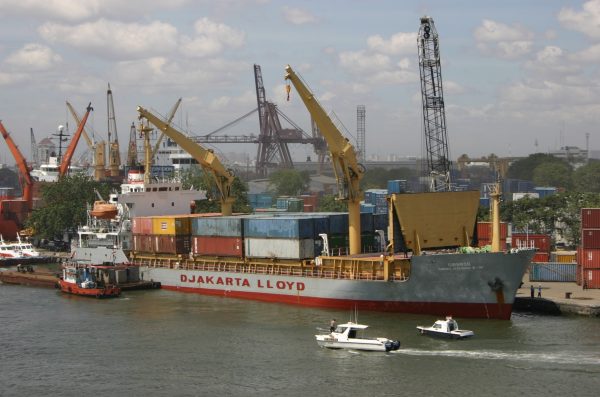Tariff Shockwaves: Indonesias Export Strategy Under Fire
3 minute readPublished: Tuesday, May 27, 2025 at 3:07 pm

**Tariff Wars: Indonesia Navigates Uncertain Trade Waters**
The global trade landscape is once again under fire as the U.S. considers imposing reciprocal import tariffs, threatening to disrupt international commerce. This move, driven by concerns over U.S. competitiveness, job creation, and trade deficits, has put countries like Indonesia in a precarious position. While a 90-day postponement offers a temporary reprieve, the uncertainty surrounding U.S. trade policy, particularly under the Trump administration, is causing significant anxiety.
The article highlights lessons learned from the previous tariff war, where the U.S. increased tariffs on Chinese goods. Despite these measures, the U.S. trade deficit didn't shrink, as China rerouted exports and U.S. industries struggled to substitute imports. Indonesia, however, saw some benefits, with its products filling gaps in the U.S. market and attracting export-oriented Chinese investment.
The current situation presents a more complex challenge. The new tariff scheme targets a wider range of countries, potentially leading to a contraction in exports to the U.S. and a flood of surplus goods from China into global markets, including Indonesia. This could slow Chinese investment in Indonesia and increase production costs.
Indonesia faces a difficult balancing act. The article suggests several strategies, including proactive bilateral negotiations with the U.S., leveraging existing trade agreements, and reassessing its own trade policies. Diversifying export markets, attracting foreign investment in intermediate-goods manufacturing, and strengthening trade defenses are also crucial. Internal reforms to improve the business climate, boost productivity, and upgrade infrastructure are equally important.
BNN's Perspective:
While the potential for economic disruption is undeniable, Indonesia has a chance to navigate these turbulent waters. By strategically engaging with the U.S. and diversifying its trade partnerships, Indonesia can mitigate the negative impacts and even capitalize on new opportunities. However, this requires a proactive and adaptable approach, coupled with internal reforms to strengthen its economic resilience. The situation is fluid, and Indonesia must be prepared to adjust its strategy as the global trade landscape evolves.
Keywords:
Tariffs, Indonesia, trade, U.S., Donald Trump, import tariffs, export, trade deficit, China, ASEAN, trade agreements, reciprocal tariffs, global trade, economic impact, trade policy, protectionism, bilateral negotiations, foreign investment, supply chain, economic reform, trade war, recession, dumping, free trade agreement, Generalized System of Preferences, BRICS, OECD, World Trade Organization, infrastructure, competitiveness, business climate.